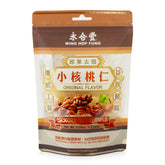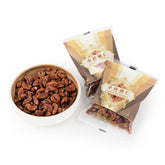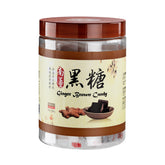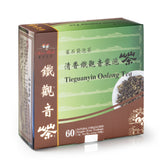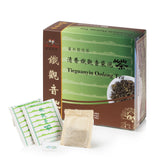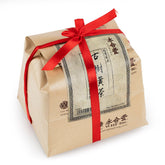Tienma for Spring Winds

In ancient times Chinese doctors believed that illness and pain were brought on evil winds. External winds carried germs causing epidemic disease. Internal winds described nerve pains capable of shifting though the body like wind due to rising fire (inflammation) of the liver. Today, Spring winds bring allergens, including pollen, changeable weather, humidity and chemical pollution. Do your neighbors spray their grass with Roundup? It stays in the soil for 6 (you read it correctly SIX years!)
Many people complain of headaches, dizziness, irritability and insomnia especially in Spring because the Wood Element, liver/gallbladder energy system, is more active. The liver has to deal with the stress of weather and pollution. Your nerves may feel more sensitive. Green grass pushes up through dry ground, bright flowers and buds bloom in full glory. And we sneeze, cough and our head aches.
Tienma
Tianma (Gastrodia elata Blume) is a traditional Chinese medicine (TCM) often used for the treatment of headache, convulsions, hypertension and neurodegenerative diseases, epilepsy, stroke, amnesia and others. Tienma tea has long been used as a valuable food and brain tonic to improve memory and prolong life.
Current Animal Research
Tianma also “modulates the cleavage of the amyloid precursor protein App and cognitive functions in mice.” The neuronal actions of tianma has thus led to investigating its specific effects on neuronal signaling which opened the door to studying the use of Tienma for Alzheimer’s and other brain and nerve damage illnesses.
Recent data shows that the number of people affected by Alzheimer’s disease (AD) and dementia is increasing at an epidemic pace. There is great interest in using TCM herbs that affect aging because biological aging represents the major risk factor for the development of AD, vascular dementia (VD) and other cardiovascular diseases (CD). Traditional herbal medicine is especially attractive for disease prevention, health maintenance, and sicknesses that are non-responsive to current Western medicine and thus has attracted worldwide attention and interest. The use of Chinese medicinal herbs has a long history in Asia and is commonly used to treat various neurological diseases including stroke, epilepsy and VD vascular dementia.
Tienma Orchid
Tienma is a tuber that belongs to the orchid family. Orchids and their derivatives have been shown to benefit neural functions in clinical studies although the underlying mechanisms are largely unknown to Western medicine. That hampered the manufacture of drugs as well as the industrial exploitation. In recent studies Tienma proteins with possible neuro-protective roles and/or neuro-differentiation potential, which are important for neuronal survival and synaptic plasticity during neuro-regenerative processes in the brain, [including mitochondria,] were up-regulated upon tianma stimulation.” The study concludes that Tianma effects neuronal functions and signaling molecules critically involved in common neurorestorative processes related to neurodegenerative diseases such as Alzheimer’s, Parkinson’s or Huntington’s disease.”
https://www.ncbi.nlm.nih.gov/pmc/articles/PMC3388733/
Popular Tea
Chinese people have been drinking mild-tasting, soothing, cooling Tienma tea for hundreds of years. Tienma slices can be cooked with chicken soup and congee. Tianma (Gastrodia elata Blume, Orchidaceae has long been officially listed in the Chinese Pharmacopoeia and is used in treating headaches, dizziness, tetanus, spasm, painful joints, hypertension, epilepsy, infantile convulsions and numbness of the limbs.
Spring Tonic for Evil Winds
If Springtime irritations or nerve pains, spasm, dizziness, hypertension or numbness of hands or feet make you feel off balance, tense, with headaches and poor circulation, Tienma tea or Tienma chicken soup may bring comfort and improve general health.
WingHopFung sells Tienma (Gastrodia elata) tuber sliced and dried which easily can be brewed as tea or added to cooking. https://winghopfung.com/products/tian-ma-rhixoma-gastrodia?_pos=1&_sid=bbe85c4be&_ss=r#

